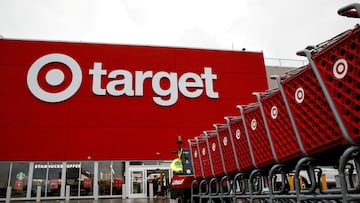Goodbye to these bills: Target announces it will not accept these dollars in 2025
Target, alongside other stores, banks, and ATMs, will no longer accept certain bills. Find out which notes will be refused and why.

To bolster the security of the monetary system, the Bureau of Engraving, the Secret Service, and the Advanced Counterfeit Deterrence (ACD) Steering Committee have implemented an initiative to stop U.S. retailers, banks, and ATMs from accepting specific banknotes.
Reports indicate that the dollar bills set to be rejected include those classified as “mutilated” — with cuts, damaged edges, or discoloration. This policy applies to stores and supermarkets such as Target, Walmart, Dollar Tree, Costco, and others.
Currently, the Federal Reserve issues dollar bills in seven denominations: $1, $2, $5, $10, $20, $50, and $100. While $500, $1,000, and $10,000 bills are no longer produced, they remain in circulation. However, these high-denomination notes can be rejected if they meet the “mutilated” criteria, just like any other bill.
You may also be interested in: When will my bills be removed?
How can you tell if your dollar bill is “mutilated”?
Banknotes typically become mutilated due to factors like “fire, misuse, or even deterioration from burying money,” according to the Federal Reserve. Bills with cuts, damaged edges, or discoloration fall into this category.
What should you do with your “mutilated” dollar bills?
If you possess mutilated bills, you’ll need to contact the Bureau of Engraving and Printing. Filing a mutilated currency claim is required. The Bureau provides a step-by-step guide for redeeming such currency.
“The BEP will evaluate the note. They have special tools to examine the authenticity and assess the full value of the note. After they do that, they can issue a check back to the consumer,” a Fed currency representative explains.
New designs in circulation
Alongside these new security measures, the Federal Reserve plans to release updated designs for the $5, $20, $50, and $100 bills in the coming years. The updated $50 bill will debut in 2028, the $20 bill in 2030, the $5 bill between 2032 and 2035, and the $100 bill between 2034 and 2038.
How to detect a counterfeit banknote?
According to experts from El Cronista, to identify if your dollar bill is real, you must detect the following characteristics:
- Light-resistant security thread with the inscription “USA”
- 3D security strip that changes when tilting the bill
- Ink that changes color in the lower right corner
- Watermark when observing the bill against the light
- Microprints around the bill
- Embossed printing that gives texture to the bill
Related stories
Get your game on! Whether you’re into NFL touchdowns, NBA buzzer-beaters, world-class soccer goals, or MLB home runs, our app has it all.
Dive into live coverage, expert insights, breaking news, exclusive videos, and more – plus, stay updated on the latest in current affairs and entertainment. Download now for all-access coverage, right at your fingertips – anytime, anywhere.